Gallery Network
Spotlight: Ugo Rondinone’s Witty Takeover of a Swiss Museum Sees Him Curate Himself Into Art History
The exhibition is on view at the Museum of Art and History, Geneva, through June 18.
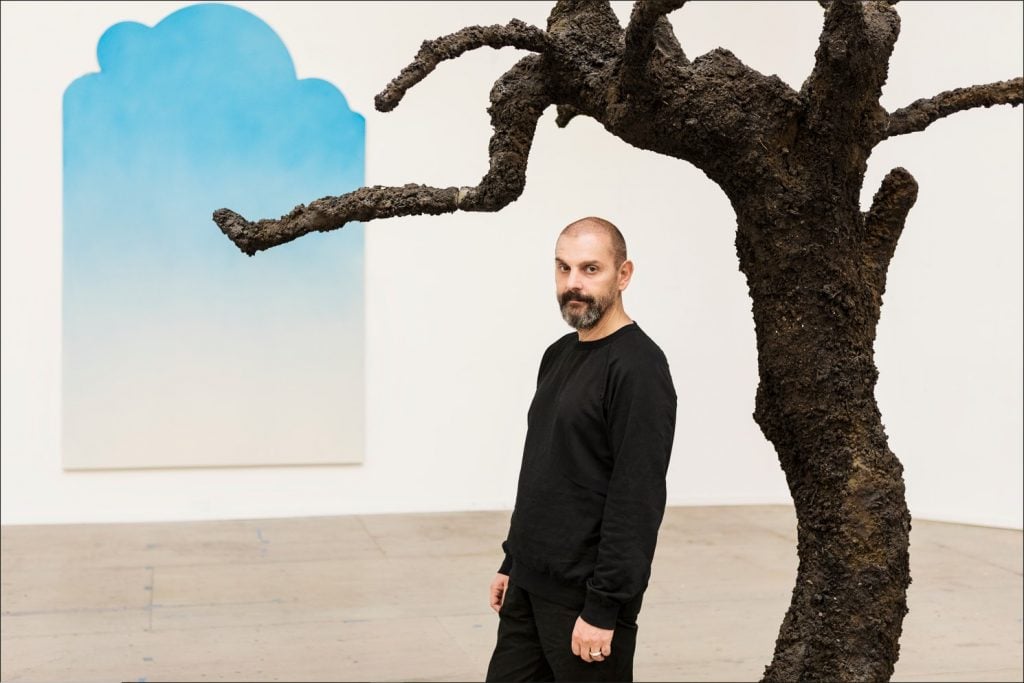
The exhibition is on view at the Museum of Art and History, Geneva, through June 18.

Artnet Gallery Network

Every month, hundreds of galleries add newly available works by thousands of artists to the Artnet Gallery Network—and every week, we shine a spotlight on one artist or exhibition you should know. Check out what we have in store, and inquire for more with one simple click.
What You Need to Know: On view from January 26 to June 19, 2023, the Museum of Art and History (MAH) in Geneva is presenting their its annual Open Invitation exhibition. For this edition, Ugo Rondinone was invited to take over the MAH building and its collection to produce the immersive exhibition experience “when the sun goes down and the moon comes up.” Situated within the iconic architecture designed by Marc Camoletti (1858–1940), and heavily referencing two famed Swiss artists from the collection, Ferdinand Hodler (1853–1918) and Félix Vallotton (1865–1925), the endeavor posits a dialogue between the historic and the contemporary, thanks to Rondinone’s interventions. The proverbial bookends of the exhibition are two works by Rondinone, the sun (2017) and the moon (2022)—circular sculptures measuring more than 16 feet in height, the former in gold and the latter in silver—which can be used as starting or ending points for visitors as they wind their way through the galleries.
About the Artist: Swiss artist Ugo Rondinone (b. 1964) studied at the Hochschule für Angewandte Künste in Vienna before relocating to New York in 1998, where he currently lives and works. Rondinone represented Switzerland at the 2007 Venice Biennale alongside Urs Fischer and has become widely recognized for his monumental public commissions; his two most famous being Human Nature (2013), which was installed at New York’s Rockefeller Center and received millions of visitors, and Seven Magic Mountains (2016), an installation of boulder totems in the Nevada desert. Working across sculpture, painting, video, sound, and photography, the artist’s varied practice engages with equally diverse themes and motifs that reference the zeitgeist through, for example, contemporary parlances or the iconography of advertising. Rondinone also has a parallel curatorial practice, granting him a complex understanding of the myriad ways his work and projects interface with the public.
Why We Like It: Rondinone’s takeover of the MAH highlights both the artist’s unique artistic and curatorial vision as well as the institution’s premier historical collection and magnificent architecture. Involving nearly a dozen gallery rooms, Rondinone invites visitors to explore the unique juxtapositions between his work and that of the historical art and architecture of the room. In one gallery, Rondinone takes a collection of Hodler paintings of Swiss warriors and installs them on pedestals, transforming them into sculptures to circumnavigate. Elsewhere, another gallery is populated with 11 glass horses in varying shades of blue containing water from different oceans, a response to the series of paintings by Hodler depicting Lake Geneva and Lake Thun that are hung on the wall—inviting a reflection on the natural versus artificial, “the bounded and the boundless.” Together, each room within “when the sun goes down and the moon comes up” presents a new facet of Rondinone’s dialectical exploration of his own artistic practice against the backdrop of a major European institution.
See inside the exhibition below.
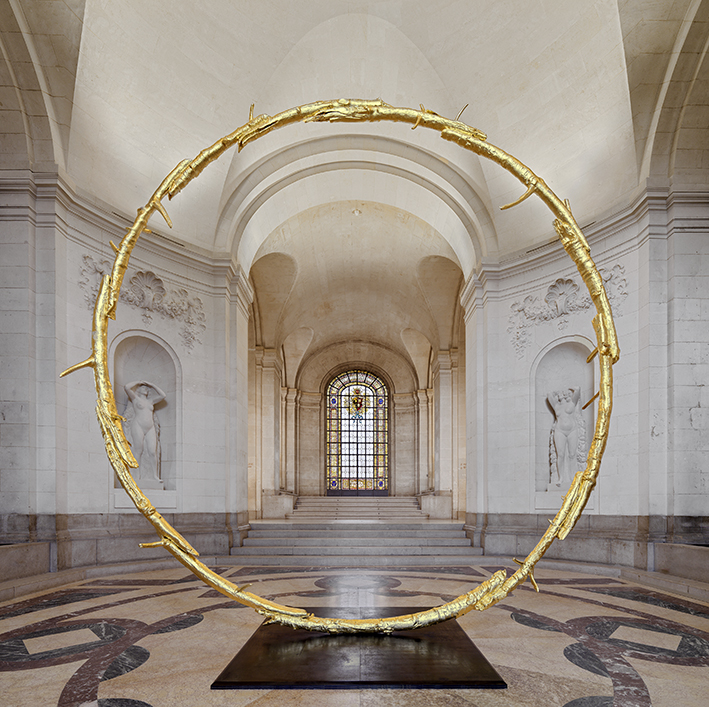
Installation view of “when the sun goes down and the moon comes up” (2023). Photo: Stefan Altenburger. Courtesy of the Museum of Art and History, Geneva.
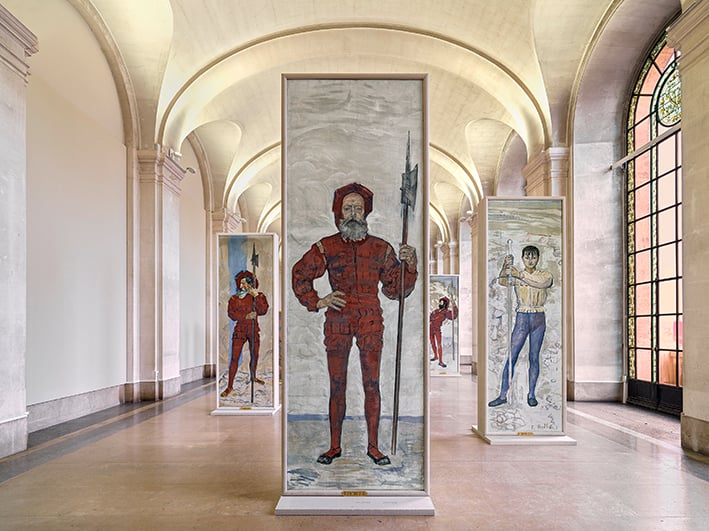
Installation view of “when the sun goes down and the moon comes up” (2023). Photo: Stefan Altenburger. Courtesy of the Museum of Art and History, Geneva.
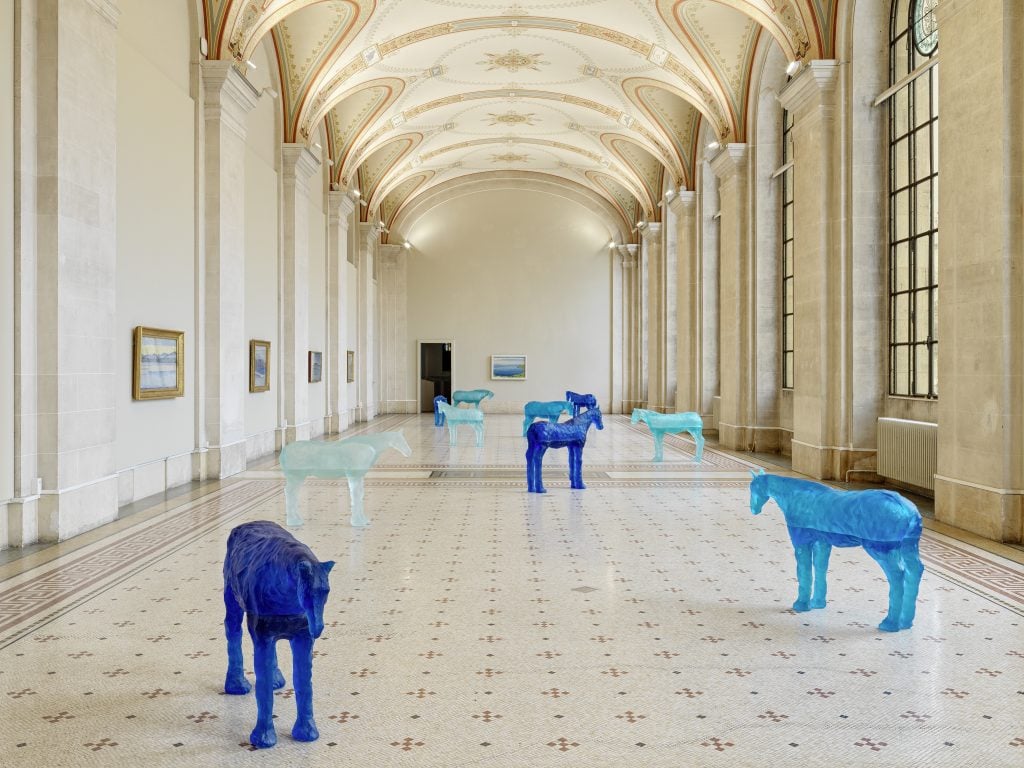
Installation view of “when the sun goes down and the moon comes up” (2023). Photo: Stefan Altenburger. Courtesy of the Museum of Art and History, Geneva.
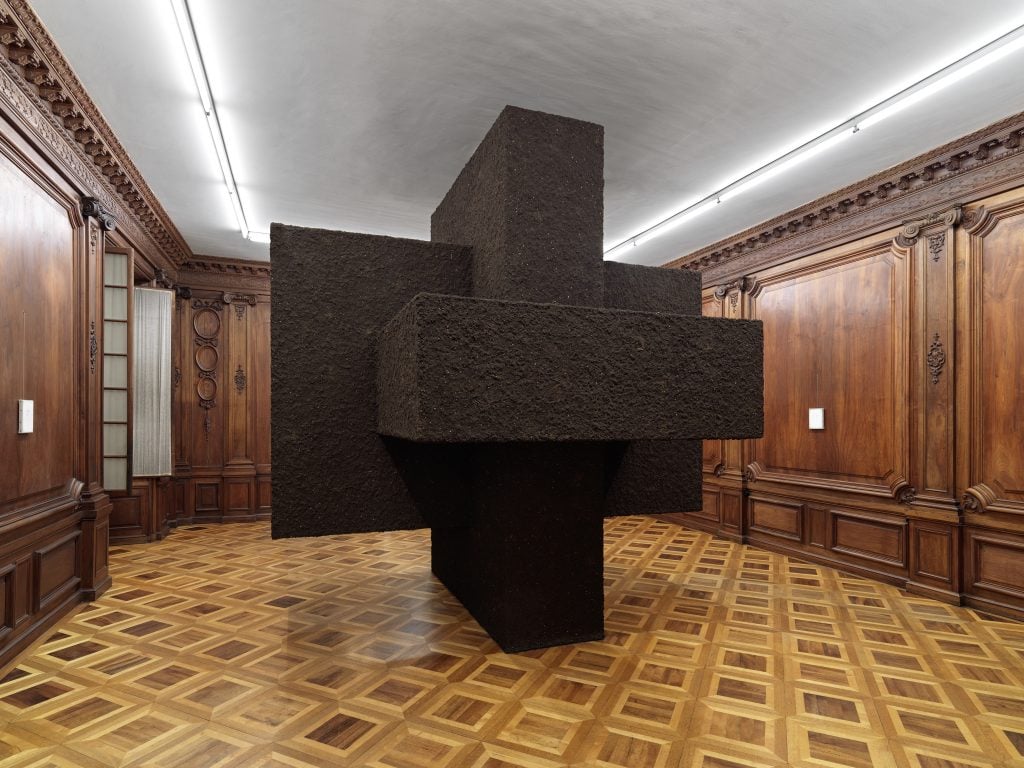
Installation view of “when the sun goes down and the moon comes up” (2023). Photo: Stefan Altenburger. Courtesy of the Museum of Art and History, Geneva.
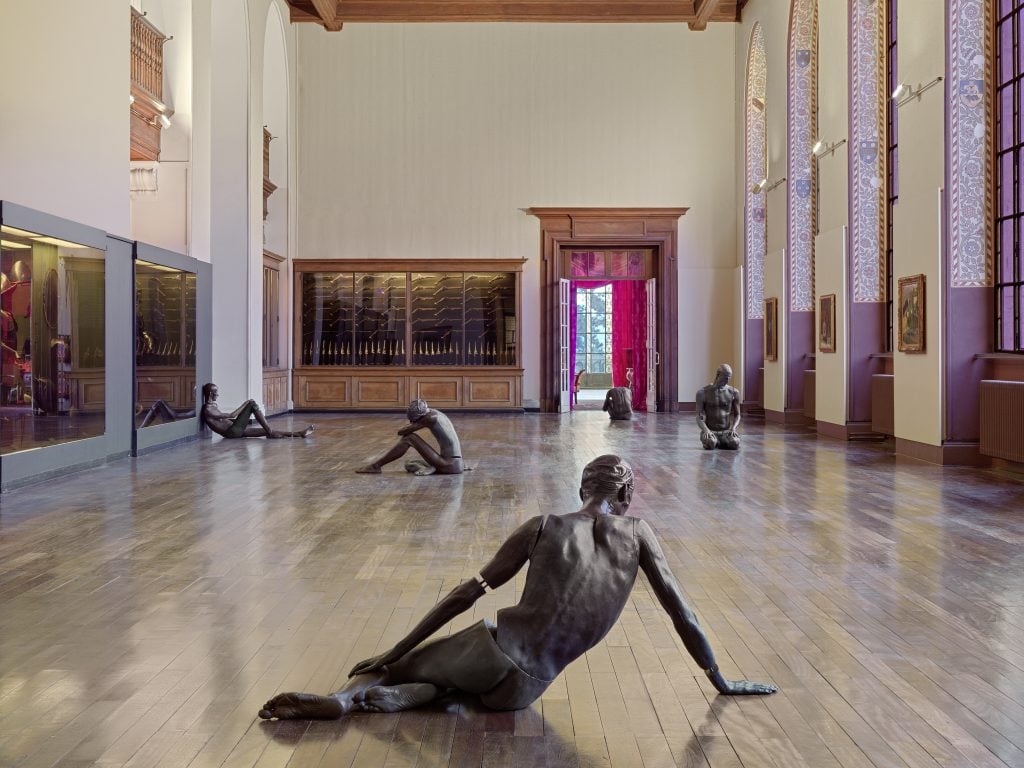
Installation view of “when the sun goes down and the moon comes up” (2023). Photo: Stefan Altenburger. Courtesy of the Museum of Art and History, Geneva.
“when the sun goes down and the moon comes up” is on view through June 18, 2023.